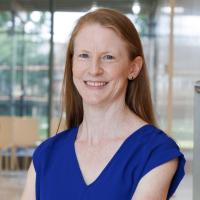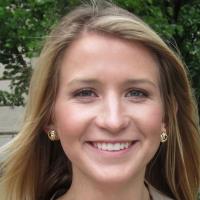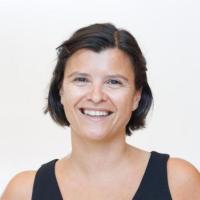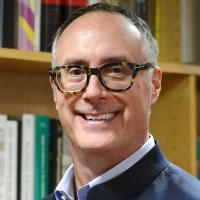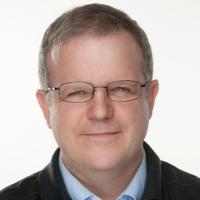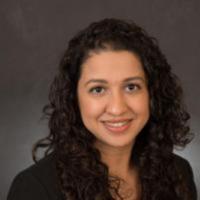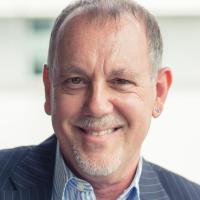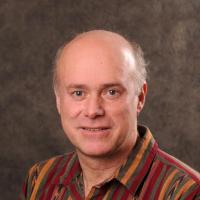Faculty
Core Teaching Faculty
Rachel T Moresky, MD, MPH, FACEP
- Interim Director of the Program on Forced Migration and Health
Rachel Moresky, MD, MPH focuses on international emergency medicine systems development in resource-poor settings, humanitarian relief, disaster medicine, disaster communication systems, referral, and public health applications of emergency medical care. Dr. Moresky currently directs sidHARTe - Strengthening Emergency Systems program in Ghana, and teaches Communicable Disease in Complex Emergencies. View Publications and Research

Sara Casey, DrPH
- Associate Professor of Population and Family Health at CUMC
Sara Casey, DrPH, focuses on using sound data collection and analysis to improve the availability and quality of sexual and reproductive health services in countries whose health systems have been weakened by war or natural disaster. Dr. Casey is Director of the Reproductive Health Access, Information and Services in Emergencies (RAISE) Initiative, a global program collaborating with program partners to identify and respond to challenges to improve contraceptive and abortion-related services in humanitarian settings in Africa and Asia. She provides technical guidance to partners to establish program monitoring and evaluation systems and conduct health facility assessments, population-based surveys and other implementation research. View Publications and Research

M. Claire Greene, PhD, MPH
- Assistant Professor of Population and Family Health
M. Claire Greene, PhD, MPH, is a psychiatric and substance use epidemiologist. Her research focuses on improving the effectiveness and implementation of mental health and psychosocial support programs in humanitarian settings by integrating methods in epidemiology, intervention evaluation, and implementation science. She is involved in research to develop, evaluate and scale up mental health and substance use interventions in diverse settings and populations globally. In her work she collaborates with governmental and non-governmental organizations, international agencies, and academic institutions. She completed a postdoctoral fellowship in global mental health implementation science at Columbia University/New York State Psychiatric Institute, received her PhD from Johns Hopkins Bloomberg School of Public Health, and her MPH from Yale School of Public Health. She co-teaches Investigative Methods in Complex Emergencies. View Publications and Research

Sabrina Hermosilla, PhD, MPH
- Assistant Professor of Population and Family Health
Sabrina Hermosilla, PhD, MPH, MIA, MS, is a social epidemiologist who applies rigorous epidemiologic and psychometric principles and methods to study social determinants of mental health and psychosocial outcomes in complex global settings. With an explicit focus on potentially modifiable factors, her research in implementation science explores and builds the evidence around commonly implemented interventions, primarily in humanitarian and forced migration settings. She has nearly two decades of experience designing and implementing studies in humanitarian contexts. In addition to her position at Columbia, she serves as President of the Board of Directors for Roots of Health and leads the Research and Evaluation Thematic Group for the Olympic Refuge Foundation Think Tank. Her teaching centers on the epidemiology of global and adolescent mental health, measurement, and applied data collection and management best practices in complex low resource settings. View Publications and Research

S. Patrick Kachur, MD, MPH
- Professor of Population and Family at the Columbia University Medical Center
Patrick Kachur, MD, is a public health physician and epidemiologist. He has worked on global health programs spanning emergency response and sustainable development since 1988. His current work focuses on malaria, primary health care, disease surveillance and response and universal health coverage through realist evaluation and implementation science platforms. Dr. Kachur directs the program on Advancing Research for Community Health Systems in the Heilbrunn Department of Population and Family Health and teaches courses in Malaria Program Planning (P8654) and Applications of Implementation Science in Lower- and Middle-Income Countries (P9620). Professor Kachur is also the Interim Chair of the Heilbrunn Department of Population and Family Health. View Publications and Research

Adjunct Teaching Faculty
Jeanette Bailey, MSc, PhD
- Adjunct Assistant Professor of Population and Family Health
Jeanette Bailey, MSc, PhD candidate at the London School of Hygiene and Tropical Medicine, has nearly 15 years experience in humanitarian nutrition programs. She is currently the Project Director for ComPAS (Combined Protocol for Acute Malnutrition Study) at the International Rescue Committee, where she is leading a multi-agency, multi-country research consortium to pilot new approaches in the treatment of childhood acute malnutrition. She previously worked for the IRC, Doctors Without Borders, Action Against Hunger and Save the Children designing, leading and assessing nutrition programs in emergencies. She is the co-facilitator of the Nutrition Forum, an inter-agency working group of humanitarian nutrition partners.

Mark Canavera, MA, MPP
- Associate in Population and Family Health; Associate Director, Strategy and Practice
Mark Canavera, MA, MPP, was the Associate Director of the CPC Learning Network, an entity housed at the Columbia University’s Mailman School of Public Health which convenes academics, policymakers, and practitioners to promote innovative research, nurture communities of learning, and build the next generation of researchers and advocates for children and families worldwide. In this role for over twelve years, he coordinated research and advocacy efforts on children’s protection, care, health, and development; he serves as the co-chair of the Building the Evidence Interest Group of the Global Social Service Workforce Alliance and the Task Force on Systems Strengthening and Disaster Risk Reduction for the global Child Protection Working Group. Mark came to the CPC Learning Network after many years working as a humanitarian aid and development worker in West Africa. He also launched and served as the founding coordinator of the Community Child Protection Exchange, an online initiative to improve the level of knowledge and understanding around community-based child protection mechanisms and national child protection systems. He has worked in over 20 countries with a variety of agencies, including Save the Children, UNHCR, Oxfam, Terre des hommes, AVSI, and Child Frontiers. His work has spanned former child soldier reintegration in northern Uganda, small arms control in Senegal, girls’ education promotion in Burkina Faso, and child welfare system reform in Côte d’Ivoire, Niger, Benin, and Cameroon. He holds Master’s degrees in Peace Studies from Notre Dame and Public Policy from Harvard.

Emmanuel d’Harcourt, MD
Emmanuel d’Harcourt, MD, is a pediatrician who has worked for the Peace Corps, the Pasteur Institute, and the International Rescue Committee. He is currently a consultant at Vital Strategies, working on data use and on early childhood development. He has worked as a clinician, researcher, outbreak responder, and manager. Emmanuel has lived and worked in primarily in Africa but also in Asia and Latin America, focusing on child and maternal health, conflict recovery, and health systems. Emmanuel received his MD from Johns Hopkins University and his MPH from Harvard University, and completed a pediatric residency at the Children's Hospital of Philadelphia.

Shannon Marquez
- Adjunct Professor of Environmental Health Sciences
- Faculty Advisory Committee Member, Columbia Global Center I Paris & Nairobi
- Faculty, Columbia Water Center
Dr. Shannon Marquez is the Dean of Global Engagement and Director of the Columbia University Center of Undergraduate Engagement (UGE). UGE enhances access and support for global opportunities and brings students and faculty together in a central location that creates a hub of global activity, leveraging the Columbia Global Center networks in Europe, Latin America, Africa, Asia, and the Middle East; and partnerships around the world. Prior to joining Columbia University, Dr. Marquez was the Vice Provost for International Development and a Professor of Global and Environmental Health, Civil and Environmental Engineering, and Biodiversity, Earth and Environmental Science at Drexel University, where she also served as the Founding Director of the Drexel Global Health Initiative and the Dornsife Global Development Scholars Program which supported 3 to 6 month MPH practica, co-op/internship experience, and field-based research in 36 countries across Sub-Saharan Africa, Latin America and Southeast Asia; and she developed and launched CHE-community health and environment in Cuba-a faculty-led intensive field course taught in Cuba, in partnership with the University of Cienfuegos and CIVITAS. An experienced senior international officer, global health scholar, public health engineer and environmental scientist, Dr. Marquez has garnered international recognition for her work on achieving the SDGs in low- and middle-income countries with a particular focus on water, sanitation, and hygiene (WASH); the global water crisis and impacts on global health; and the environmental burden of disease in Sub-Saharan Africa. Dr. Marquez has held distinguished international faculty appointments at The University of The Gambia and Gambia College School of Public Health; the Universite Gaston-Berger de Saint-Louis in Senegal; as an Erasmus Mundus Scholar at the Ecole des Hautes Etudes en Sante Publique (or EHESP, The French School of Public Health), and the University of Sheffield (UK) School of Health and Health Related Research (ScHARR); and as an Associate Scholar at the University of Pennsylvania, Perelman School of Medicine-Center for Global Health.

Alina Potts, MPH
- Associate in the Department of Population and Family Health
Alina Potts, MPH, has led responses to gender-based violence (GBV) in a number of emergencies with the International Rescue Committee, and multi-country research on violence prevention with UNICEF. Her current work with the Global Women’s Institute includes leading participatory action research in Lebanon, Uganda and Bangladesh to mitigate the risk of sexual exploitation and abuse in the way aid is distributed; and developing training for gender professionals. Alina’s experience in forced migration extends to refugee resettlement; asylum advocacy; and addressing grave violations against children with Professor Les Roberts. She is a PFMH alum and looks forward to teaching the “GBV in Complex Emergencies” class each spring.

Goleen Samari, PhD
- Adjunct Assistant Professor in the Heilbrunn Department of Population and Family Health
Goleen Samari, PhD, MPH, MA is a public health demographer whose research focuses on several dimensions of social inequality and health in order to promote health equity. In particular, she focuses on how social inequities on the basis of migration, gender, race, and religion shape population health. Her work pays specific attention to populations in or from the Middle East and North Africa (MENA), and she has over a decade of experience working on health issues in the MENA. Dr. Samari was the first to draw attention to Islamophobia and racialization of religious minorities as a public health issue and is one of a few demographers focused on migration, gender, and health in the Middle East and North Africa. For the last five years, she has examined the global response to Syrian refugee women’s health in Lebanon, Jordan, and Turkey. Her work also considers how political and policy shifts shape demographic aspects of migration, immigrant families, and subsequent health behaviors and outcomes. She completed an NIH postdoctoral fellowship in demography at UT Austin and received her Ph.D. in Public Health from the University of California Los Angeles (UCLA). She also has an M.A. in Islamic Studies from UCLA and an MPH in Community Health Sciences from UCLA. Her training and research uniquely position her for understanding the health needs of migrant and displaced populations in the MENA region.

Carrie Teicher, MD, MPH
Dr. Carrie Teicher is the Director of Programs at Doctors Without Borders/Médecins Sans Frontières (MSF). Carrie has worked with MSF in multiple different roles and numerous contexts throughout four continents. Outside of MSF, Dr. Teicher has additionally served as a medical coordinator, primary investigator, and program coordinator in the global health sector working primarily in the emergency medicine and tropical medicine fields. She holds an MD from the Sackler School of Medicine, an MPH from The Mailman School of Public Health at Columbia University, and her undergraduate degree from Barnard College. From 2001-2003 she served in the Peace Corps in Mali.

Mesfin Teklu Tessema, MD, MA
Mesfin Teklu Tessema, MD, MA., is the Head of the Health Unit at the International Rescue Committee, where he leads IRC’s efforts in diverse areas of health programming and policy. He has more than 25 years of experience in the areas of public health, nutrition and humanitarian affairs. Prior to joining the IRC in 2017, Dr Tessema served in various positions and countries for international humanitarian organizations, most recently served as the global health lead for World Vision International. He also served as Director of Geneva office for World Vision International, Senior Nutritionist for Save the Children, and Reproductive Health Advisor for Marie Stopes International in Ethiopia. As a medical doctor, he practiced medicine in public and private health care settings in Ethiopia. He is also Adjunct Assistant Professor of Population and Family Health at Columbia University, an affiliate to the John Hopkins University’s Center for Humanitarian Health, and a member of the Gavi vaccine alliance Partnership Team and the COVAX leadership group. Dr. Tessema served on the funding committee for Elrha’s Research for Health in Humanitarian Crises, as Civil Society representative in the Investors Group of the Global Financing Facility for RMNCAH, as the founder and co-director of the executive course on health diplomacy and humanitarian space at the Graduate Institute of Geneva. He is the author of the health chapter in the 2011 edition of the Sphere Handbook: humanitarian charter and minimum standards in humanitarian response. Dr Tessema earned his Doctor of Medicine degree from Jimma University, Ethiopia, and holds a Master of Arts in Humanitarian Assistance from Tufts University, Massachusetts, USA.

Casie Tesfai
Casie Tesfai is the Senior Technical Advisor for Nutrition at the International Rescue Committee, based in New York. She has an MSc in Public Health Nutrition from the London School of Hygiene and Tropical Medicine and an MSc in International Studies. She holds a certificate in Breastfeeding Practice and Policy from the UCL Institute of Child Health and is a Certified Lactation Counselor. She has 15 years of experience working in nutrition in humanitarian contexts. She started her career with Peace Corps in Niger and went on to work with GOAL, HKI, and UNICEF in Niger, Sudan, South Sudan, and Ethiopia before joining IRC. Her area of expertise is in the community based management of acute malnutrition and infant and young child feeding in emergencies.

Alastair Ager, PhD
- Adjunct Professor Population and Family Health
- Faculty, Global Health Initiative
Alastair Ager, PhD, has worked in the field of global health and development for over twenty years. Trained in the field of psychology, he served as head of the Department of Psychology at the University of Malawi for four years. Prior to joining Columbia he was Senior Research Manager for DFID. He teaches Investigative Methods in Complex Emergencies. Alastair has recently moved to Queen Margaret University in Scotland after 10 years but remains affiliated with the Program on Forced Migration and Health as faculty.

Professor Emerita
Les Roberts, PhD
- Professor Emeritus of Population and Family Health at CUMC
- Special Lecturer in Population and Family Health
Les Roberts, PhD, has led more than 50 surveys in 17 countries. In recent years he has taken part in studies to measure mortality during war in Democratic Republic of Congo, Iraq, Zimbabwe and Central African Republic. He served as Director of Health Policy at the International Rescue Committee for three years. Les teaches Public Health and Humanitarian Action, Water and Sanitation in Complex Emergencies, Investigative Methods in Complex Emergencies, and Epidemiological Methods for Measuring Human Rights Abuses. Les previously served as the interim Director of the Program on Forced Migration and Health from 2012-2014.

Mike Wessells, PhD
- Professor of Clinical, Population and Family Health
Mike Wessells, PhD, is lead investigator of inter-agency action research on strengthening community-based child protection mechanisms in Sierra Leone and Kenya. He has conducted extensive research on the holistic impacts of war and political violence on children, and regularly advises UN agencies, governments, and donors on issues of psychosocial support. Mike teaches Psychosocial and Mental Health Issues in Forced Migration.







